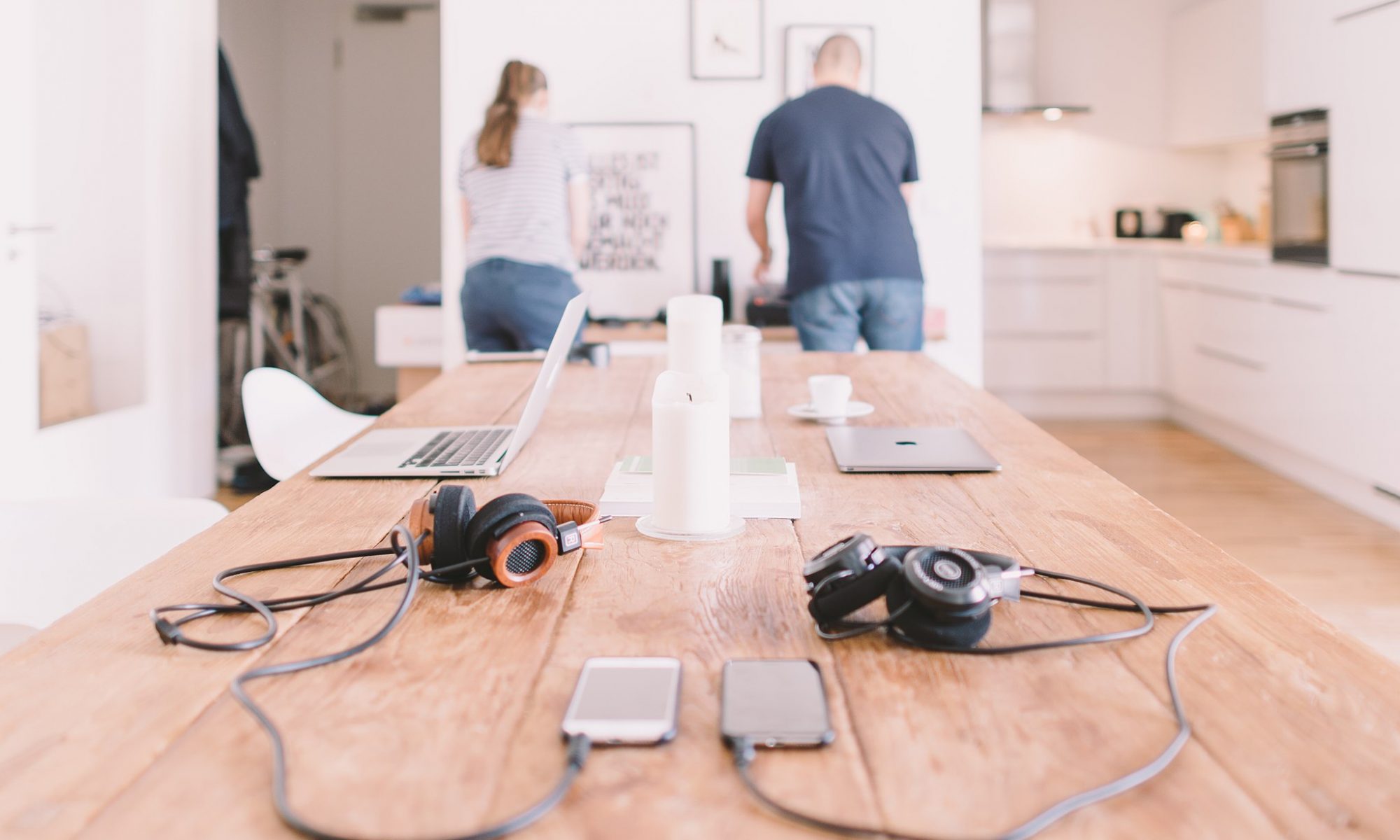by Sarah Hill, Tara Homer, Will King and Matt Breckons
Welcome to the first instalment of the Newcastle HEES group’s COVID-19 mini-series. This series will comprise an indefinite number of blogs which will both analyse COVID-19 from a health economics perspective and reflect the working life of a health economist during this unprecedented time.
The first in this series is something the vast majority of you will no doubt be familiar with by now: working from home (WFH). This practice may have been familiar to some pre-COVID, although it most likely was a part-time agreement rather than a full-time necessity. To many of us, however, this was a fairly rare practice pre-COVID. Within our team, like many others, this shift in work practice has induced mixed feelings. This post intends to present the views of our new way of working from a range of perspectives and demonstrates that however you approach WFH, you are not alone! Whether you love it, hate it, or fall somewhere in between, this blog will hopefully provide readers with some camaraderie in your preference.
To begin, I write this as England enters what has been commonly termed “Lockdown 2.0”. On 20th March 2020, Prime Minister Boris Johnson announced the first Lockdown, announcing that all but essential services shut their doors (and simultaneously thoroughly scuppering my 30th birthday celebrations which were due to take place that weekend). By this point, many of us who “could work from home” had been doing so on a semi-voluntary basis for a number of weeks, however, the implementation of lockdown 1.0 saw the vast majority of the UK workforce leaving their offices behind for the foreseeable future. Since this announcement we have faced several months of WFH, with a brief period of about 1.5 months where Newcastle University allowed staff to return to the office on a strict rota, with capacity caps and stringent social distancing measures in place. Then in October, as the north-east entered the Government’s “Tier 2” restrictions, the university once again instructed all non-essential staff to return to WFH. As a result of the corona virus, we have spent approximately 6 of the past 8 months working from home offices, kitchens, living rooms, bedrooms, and any other space we had available to us.
The remainder of this blog presents the experiences and views of WFH of three colleagues within the HEES group, each with a unique living/working situation.
Tara
I was on holiday on the Northumbrian coast when we were told by the PM that we should work at home if we could do so. In my naivety I just assumed we would be back to “normal working” by Easter and didn’t think much of it, but how wrong I was. Having spent 7 months (at time of writing) working at home, I do think blended working will be the future for academia, the balance of which will need to be determined on an individual basis because while some people thrive without the distractions of an open-plan office, others crave those interpersonal relationships and the routine the office brings.
As somebody who rarely worked at home, I never felt the need to create an office space at home; even my personal laptop, which I bought during my Masters (nearly 10 years ago!), sufficed for the rare days I was at home. However, a couple of weeks into working at home it was clear that my set-up was not suitable and that my laptop would not last the distance, particularly with its temperamental relationship with Microsoft Word. I collected my chair and created an office in the spare room, using my dressing table as a desk. I requested a new laptop from the University which took nearly two months to arrive due to the increased demand for IT equipment with everybody in the University now working from home. Those two months were extremely frustrating with many simple tasks often taking much longer to be completed and daily to-do lists changing depending on what programmes my laptop decided it liked on the day.
Since resolving my technical problems, the main thing I miss from “traditional” working is the camaraderie of the office and developing research ideas over a coffee. However, having said that it hasn’t been all doom and gloom. There are many benefits to working at home: increased productivity because you can focus on ticking off your to-do list without the regular interruptions (I clearly don’t have children), quiet Fridays and colleagues understanding that you are not constantly “online”, the flexibility in your working hours, the two-minute commute, and working in your slippers especially on these cold winter nights!!!
Will
Overall, I have been really enjoying the extra flexibility that comes with working from home. My WFH experience has had its positives and negatives over the past 7 months. Being able to complete personal admin tasks you normally wouldn’t be able to do if you were in the office (cooking, washing, exercise, etc.) free up a lot of extra hours in the week.
Initially, WFH was a great distraction for me to prevent pandemic boredom from setting in. Work became a real pleasure as I was engrossed with certain aspects of work (i.e. programming in R) and set myself challenges to improve my skills. After having experience in data analysis in STATA, I had challenged myself to rewrite a script for a clinical trial in R. While this was a fantastic distraction technique from the pandemic, I would say that I became a little bit obsessed with the task. Like many others, I found the boundaries of work and personal life blurring and even found myself lying in bed at night thinking about whether a “forloop” would solve the problem I had been tackling the previous day. While my skills in R undoubtedly improved, I’m unsure how healthy my relationship with work was for that first couple of months…
Since acknowledging my excessive time spent engrossed in R coding, I would say that my productivity has become more consistent and work began to feel more normal. I would argue that I’ve now adapted well to working from home and achieved a much healthier balance between work and life. I think a key factor that affects people’s WFH experience is whether they have a spare room to work in (e.g. not their bedroom). I have found that working in the bedroom, for me at least, blurs the lines between personal life and work.
At present, it seems unlikely that we will be returning to the office in the same way we did prior to COVID. While working from home is without a doubt not perfect, I believe the extra flexibility and autonomy you have as an individual is something that employees will not want to give-up.
Matt
Although I’d been watching the news, it was still a big surprise to suddenly find out I wouldn’t be going back to the office for some time. Initially, I found it difficult to manage the anxiety of the situation and focus on work but this got easier once I realised we weren’t going to run out of food (or loo roll!), although it can still be challenging to tune-out from all the worrying Covid-19 news we are bombarded with. I hadn’t worked from home at all for several years and have always valued the office as a way of compartmentalising work from home life as much as possible. Having a two-year old son has been the most challenging part of working from home; his busy schedule of daytime classes were all cancelled, so keeping him occupied was, at times, a difficult job. This became easier as we settled into a routine and outdoor parks were opened again. I’ve had to accept that some days I’m less productive, and some nights I’ve stayed up late because it’s been the only time that the house is quiet.
Speaking to others, I think lots of us are realising, through stiff necks and backs, that a lot of thought goes into creating an ergonomic workspace which isn’t as easy to do at home. I’ve also become aware of just how many people I would interact with on a typical day at work, whether bumping into someone in the kitchen or popping over to their desk and asking a question.
Although (at time of writing) advice has changed and we’ve been asked to work from home again, the weeks when we were able to come into the office were great – seeing a few familiar faces and having a social distanced coffee felt like we were starting to get back to normal. Video meetings and telephone catchups have got easier, however, other than not having to say goodbye to two sad dogs in the morning, I don’t think there’s much I prefer about the current setup and I’m longing to get back to the office when I can. Thinking about the bigger picture I wonder if, longer-term, the greater acceptability of working remotely will open up the job market in academia; will it become the norm for researchers to be able to work for universities far from their home or even overseas as long as they’ve got Skype and a decent internet connection?
A common perception from this small sample of colleagues is that there are both pros and cons to WFH on a more permanent basis, and that a flexible approach to WFH is likely to be of great benefit to workers in future. Perhaps being forced to explore more regular WFH, particularly in occupations such as academia where a laptop and internet connection is the only real necessity of the role, has opened a door to a new work-model. A future blog post will explore the future of WFH in more detail, so please come back to the blog if that is something of interest to you!

